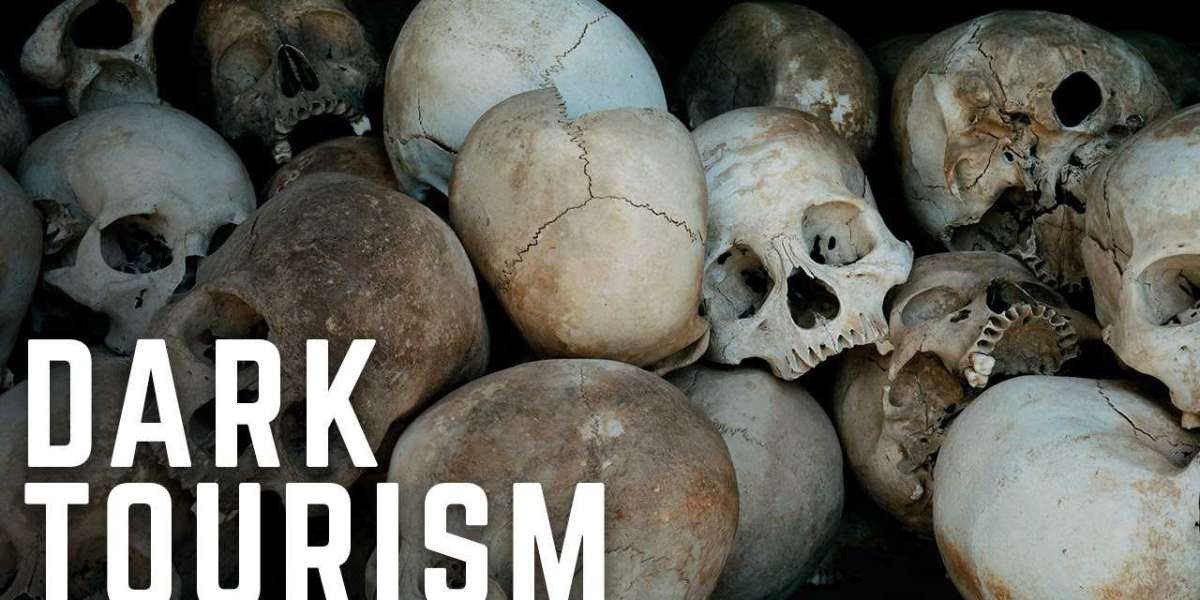Are you someone who seeks adventure and excitement during your travels? If yes, then you might have come across the term "Dark Tourism" while planning your next trip. Dark Tourism refers to the practice of visiting places that are associated with death, tragedy, or violence.
Dark Tourism is on the rise, with more and more people seeking to explore places that have a darker history. From the eerie Catacombs of Paris to the haunting Auschwitz concentration camp, there are many places around the world that attract visitors who want to experience something different.
What is Dark Tourism?
Dark Tourism is a type of tourism that involves visiting places that are associated with death, tragedy, or violence. These places can include war memorials, sites of natural disasters, prisons, and even cemeteries. Some of the most popular Dark Tourism destinations in the world include the 9/11 Memorial in New York City, Chernobyl in Ukraine, and the Killing Fields in Cambodia.
While some people might find the concept of Dark Tourism morbid, others argue that it is a way to pay respect to the victims of tragedy and learn from the mistakes of the past. Dark Tourism can also help to raise awareness and promote education about important historical events.
The Risks of Dark Tourism
While Dark Tourism can be a unique and exciting way to travel, it also comes with risks. Many Dark Tourism destinations are located in remote or dangerous areas, which can put visitors at risk of injury or harm. In addition, some Dark Tourism sites can be emotionally challenging, especially for those who have a personal connection to the event or tragedy being commemorated.
For example, visiting the Hiroshima Peace Memorial can be a deeply moving experience, but it can also be emotionally overwhelming for those who have lost loved ones in the atomic bombing. Visitors to the site should be prepared for the emotional impact of their visit and take the necessary steps to protect their mental health.
The Ethics of Dark Tourism
The ethics of Dark Tourism are often debated, with some critics arguing that it is exploitative or disrespectful to the victims of tragedy. Others argue that it is a way to pay homage to those who have suffered and to ensure that their stories are not forgotten.
One of the key ethical concerns with Dark Tourism is the potential for commercialization. Some sites that are associated with tragedy or death have been turned into tourist attractions, with gift shops and other commercial ventures located on the premises. This can create a sense of disrespect for the victims and trivialize the significance of the event.
The Future of Dark Tourism
As Dark Tourism continues to grow in popularity, it is important to consider the impact that it has on the places and people being visited. While Dark Tourism can be a way to learn about history and pay respect to the victims of tragedy, it can also be exploitative or emotionally challenging.
Moving forward, it is important to approach Dark Tourism with sensitivity and respect. Visitors should take the time to educate themselves about the history and significance of the site they are visiting and should be prepared for the emotional impact of their visit.
In conclusion, Dark Tourism is a unique and fascinating way to travel, but it is not without risks and ethical concerns. Whether you are a seasoned Dark Tourism enthusiast or considering your first visit to a Dark Tourism site, it is important to approach these destinations with respect and sensitivity. By doing so, we can ensure that the stories of the past are remembered and that the victims of tragedy are honored.







